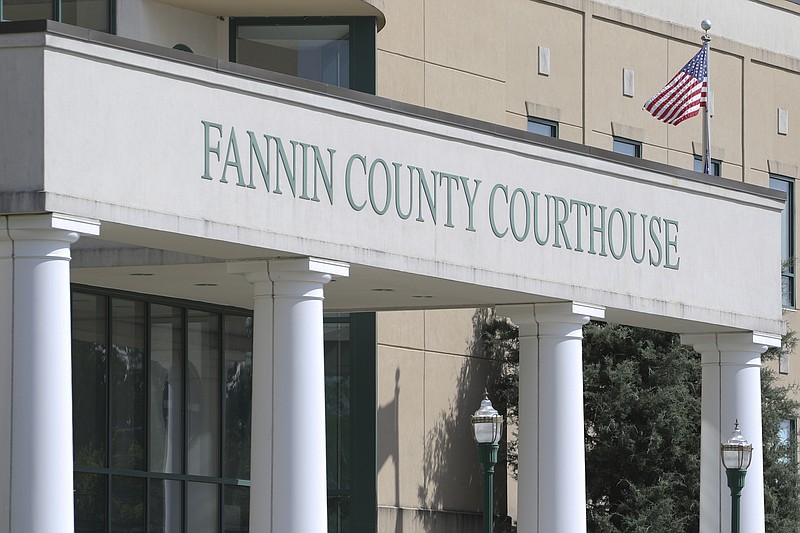A court reporter in Fannin County, Ga., will not have to release her audio recording of a hearing earlier this year in which the judge referred to a black witness using the N-word.
Judge Martha Christian, who was not part of that March hearing, ruled earlier this month that there is no reason to make the audio available to the public. Mark Thomason, the publisher of the Fannin Focus, had tried to convince Christian that the audio revealed information not found in the official court transcript.
But according to Christian's Sept. 16 order, she listened to the audio along with Thomason, his attorney, the court reporter and the court reporter's attorney. Thomason had argued that the audio would reveal the quiet voices of two sheriff's investigators using the N-word in the background, which is not found in the transcript.
But, Christian wrote in her order, "after listening as carefully as the Court could, the Court did not hear any 'whispered voices.'"
Christian ruled that Thomason cannot have the audio.
The controversy began on March 16, during a bond hearing in an arson case. One of the defendant's witnesses, Allen Duray Green, was about to testify when Assistant District Attorney Morris Martin referred to him as "[N-word] Ray." Judge Rodger Bradley then asked if "[N-word] Ray" was related to an old local bootlegger named "[N-word] Bob."
Multiple witnesses in the courtroom that day said that two sheriff's investigators also used the racial slur. If that's true, their statements did not appear in the official transcript created by the court reporter, Rhonda Stubblefield.
Thomason wrote in the Fannin Focus that several people were questioning the accuracy of Stubblefield's transcript. Stubblefield demanded a retraction from the newspaper. Thomason refused. Instead, he filed a court motion demanding the audio recording.
In turn, Stubblefield filed a $1.6 million libel lawsuit against the Fannin Focus, which is pending. Concerning the audio recording, Stubblefield's lawyer, Mary Beth Priest, argued that it is exempt from public release. Court rules dictate that a court reporter has to release either a transcript or an audio recording - not both.
Thomason's lawyer, Russell Stookey, argued that those rules should not apply because of questions over the transcript's accuracy. Though Stookey brought several witnesses who said the transcript did not match their memory of what happened in court that day, Christian said their depositions were not strong enough evidence to release the recording.
During the Aug. 25 hearing, after Christian and Thomason and Stubblefield and the lawyers listened to the recording together, Thomason argued that the recording might have been altered. He said the Georgia Bureau of Investigation was looking into it.
Christian said there was no proof that was the case.
On Tuesday, GBI spokesman Scott Dutton said his agency "is not aware of any recording, nor has any recording been submitted to us for analysis."
Thomason declined comment, saying the judge put a gag order on the parties in the case. His attorney and Stubblefield's attorney did not return calls Tuesday.
Fannin County Sheriff Dane Kirby said Christian's ruling proves what he said all along: His deputies didn't use the N-word in court.
"We just had to wait and let it run its course," Kirby said. "We knew the truth would come out. How do you argue with an audio recording?"
Editor's note: The Chattanooga Publishing Company, of which the Times Free Press is a part, prints the Fannin Focus every week.
Contact staff writer Tyler Jett at tjett@timesfreepress.com or at 423-757-6476.
